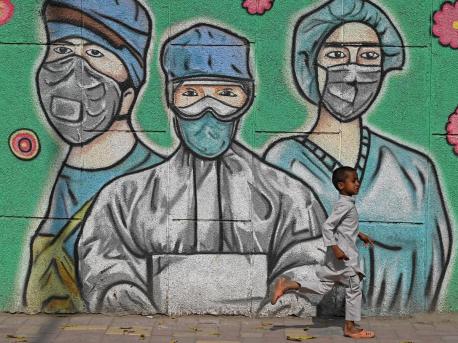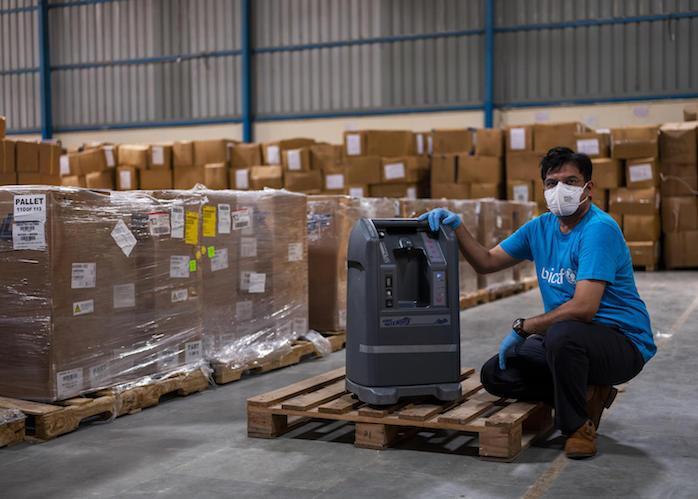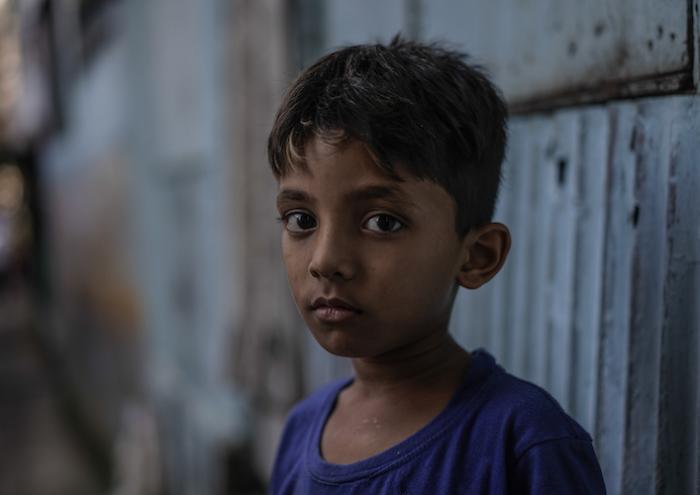
As India Faces Brutal COVID-19 Crisis, UNICEF Is There to Help
India is struggling to fight off a crushing second wave of COVID-19 cases. UNICEF and partners are on the ground, working to deliver vital supplies and save lives. You can help.
India is being hit by a rapid and deadly surge in the coronavirus pandemic. Health and critical care facilities are overwhelmed, leaving people without the medical care that they so urgently need.
Hospitals in India are overwhelmed by new COVID-19 cases
At the height of the country's first wave of infections last year, confirmed new cases reached 100,000 per day, placing significant pressure on health care facilities. Now, in just a matter of weeks, the number of new cases confirmed each day has shot up from 15,510 on March 1 to 352,991 on April 26. The total number of infections has risen above 17 million, as the official death toll nears 200,000 — actual figures are thought to be far higher.
UNICEF is rushing urgently needed supplies and equipment to critical care centers
The situation in India is "beyond heartbreaking," WHO Director-General Tedros Adhanom Ghebreyesus said on April 26. WHO, UNICEF and other organizations are rushing staff and supplies to India to help fight the crushing tide of new cases. UNICEF is delivering critical supplies like oxygen concentrators, diagnostic testing systems, hygiene supplies and PPE kits to protect health care workers.

A UNICEF worker examines a shipment of oxygen concentrators in Delhi, India. © UNICEF/UNI370564/Vishwanathan
Since the pandemic began, UNICEF has been working with partners in India to stop the spread of COVID-19, sharing information with more than 660 million people on how to stay safe from the novel coronavirus and reaching more than 3.6 million with critical water, sanitation and hygiene (WASH) supplies and services. Elbow-operated taps have been installed in schools so children can wash their hands safely with soap and water, then go home and teach their families about the importance of frequent handwashing.
UNICEF is educating communities on how to stop the spread of COVID-19, and reaching millions with WASH services
After community toilets emerged as a public health risk contributing to a spike in COVID-19 cases, UNICEF in Mumbai extended its support to an alliance of 150 community-based organizations that banded together to regularly clean and disinfect public toilets in the city's most densely populated neighborhoods.

Amanuddin, 9, stands near a community toilet in M East Ward, Chembur, Mumbai, in Mumbai, Maharashtra, India. © Dhiraj Singh for UNICEF
No one is safe until everyone is safe
"We know that this is a global pandemic, which means that the solution is not just to get our people vaccinated, but it's to make sure that we are reducing rates of infection globally," U.S. Surgeon General Dr. Vivek Murthy, who has lost several family members in India as a result of COVID-19, said on April 26. "When cases are running unchecked, and growing at high rates in other countries, that means there is a greater chance of variants to develop. No country will be ultimately safe if we have ongoing uncontrolled spread of virus in other parts of the world."
You can help UNICEF rush critical lifesaving supplies and services to protect families and communities in India. Please donate today.
Top photo: On March 21, 2021, a child runs past a mural depicting frontline health care workers, along a road in New Delhi, India. © UNICEF/UN0434773/Hussain/AFP. Video: Tong Su


